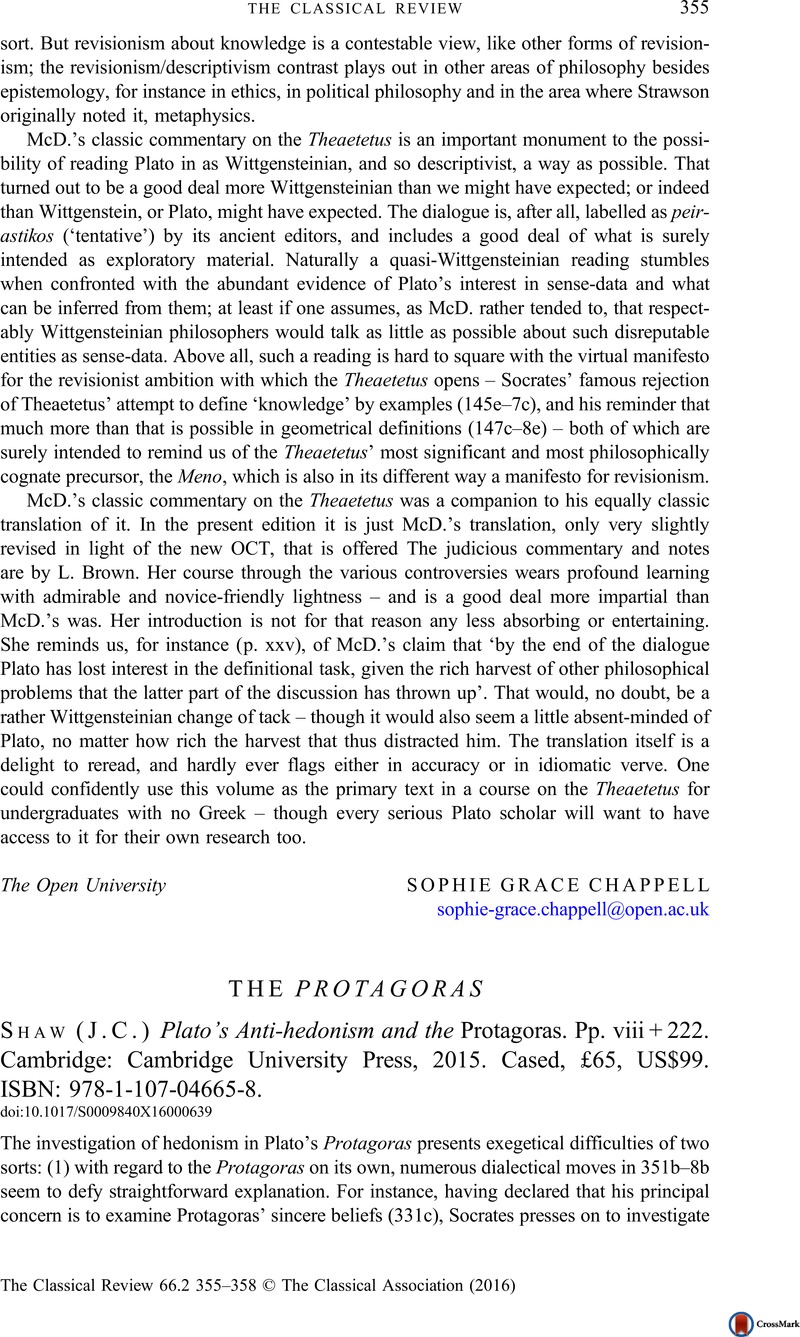No CrossRef data available.
Article contents
THE PROTAGORAS - J.C. Shaw Plato's Anti-hedonism and the Protagoras. Pp. viii + 222. Cambridge: Cambridge University Press, 2015. Cased, £65, US$99. ISBN: 978-1-107-04665-8.
Review products
Published online by Cambridge University Press: 14 April 2016
Abstract

- Type
- Reviews
- Information
- Copyright
- Copyright © The Classical Association 2016
References
1 Still, no references are made to some valuable and relevant work, most notably: M. Stokes, Socratic Conversations: Drama and Dialectic in Three Dialogues (1986), pp. 183–439; Penner, T., ‘Socrates on the Strength of Knowledge: Protagoras 351b–357e’, Archiv für Geschichte der Philosophie 79 (1997), 117–49CrossRefGoogle Scholar; C. Rowe, ‘Hedonism in the Protagoras again: Protagoras 351bff’, in A. Haveliček and F. Karfic (edd.), Plato's Protagoras: Proceedings of the Third Symposium Platonicum Pragense (2003), pp. 133–47; C.C.W. Taylor, ‘The Hedonism of the Protagoras Reconsidered’, ibid., pp. 148–64; C. Kahn, ‘Socrates and Hedonism’, ibid., pp. 165–74. The final three omissions are especially puzzling, given their focus and the fact that S. cites another study (p. 55) from the same volume (T. Robinson, ‘Protagoras, the Protagoras, and the Dissoi Logoi’, ibid., pp. 233–45). Also notable: S. does not engage any commentators writing in languages other than English.





